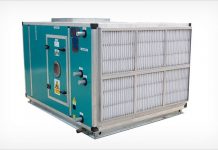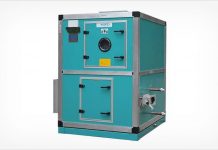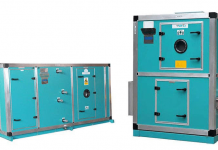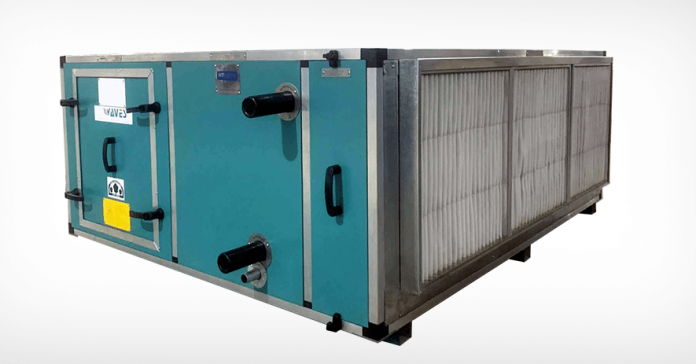
There is much more risk of getting infected in a crowded environment, in the market place 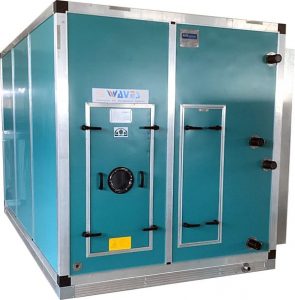 and other public places which are hard to ignore, or even the office space, where interaction between the employees cannot be ruled out completely.
and other public places which are hard to ignore, or even the office space, where interaction between the employees cannot be ruled out completely.
In this article, we will discuss the importance, utility, and effectiveness of the HVAC system and how it can neutralize the effect of the virus to a very large extent, and how Waves Aircon Pvt Ltd, has modernized its production process, in line with the requirement to battle against COVID- 19.
A sneeze or a cough expels thousands of minuscule droplets filled with bacteria and microorganisms into the air. These suspended particles quickly spread through various means. How can you prevent the staff from getting infected? A proper HVAC system goes a long way. A well-designed installation process helps to prevent bacteria from spreading:
- Ventilation
- UV light
- Relative humidity.
- Ventilation improves air quality
Ventilation
We all know that the simplest way to get rid of viruses and bacteria is proper and systematic ventilation. Imagine opening a window and letting the old damp air out and fresh outside air in. A good HVAC system ensures that there is always sufficient fresh air inside.
Although fresh outside air keeps bacteria from spreading, there is also a downside. Outside air needs to be treated by an AHU (Air-Handling Unit) – and the more air, the bigger the unit. That in turn requires recirculation to save on energy and installation costs. It is important to strike the right balance between recirculation and fresh air.
Ultraviolet filtering
Placing UV lights in the air-handling unit filters the air that enters the unit. UV light has short wavelengths that are harmful to microorganisms, breaking their molecular bonds and eventually killing or disabling them. This cleanses recirculated air from bacteria and viruses.
Using relative humidity to prevent disease
Keeping the relative humidity at a minimum of 40% has an enormous impact on the spread of bacteria. Increased moisture makes the suspended particles containing microorganisms heavier, causing them to stick to the floor and walls and preventing them from spreading through space. It’s far more difficult for bacteria to survive in a humid environment.
Dry air in turn harms human resilience. It leaches moisture from the mouth and nose, which normally traps microorganisms and prevents you from getting sick. Without the moisture, you are more susceptible to colds and the flu, for instance. Moreover, skin that gets dry and cracked is more vulnerable to bacteria. And remember that keeping relative humidity between 40% and 60% doesn’t just prevent sickness: it also keeps your skin smooth and better looking.
Even so, the risk of viruses spreading through the HVAC system is still very small. The chance of getting infected by someone who sneezes or coughs is much more likely. Moist droplets containing viruses that land on polished surfaces can survive up to 48 hours. Inside a cold and humid duct system, they are quickly killed or disabled.
Waves Aircon has modified itself to the demanding scenario of today’s environment. These features of up-gradation are available to all our existing customers in their setup.
For more details, please visit our website http://www.wavesaircon.in or post your query at care@wavesaircon.in


